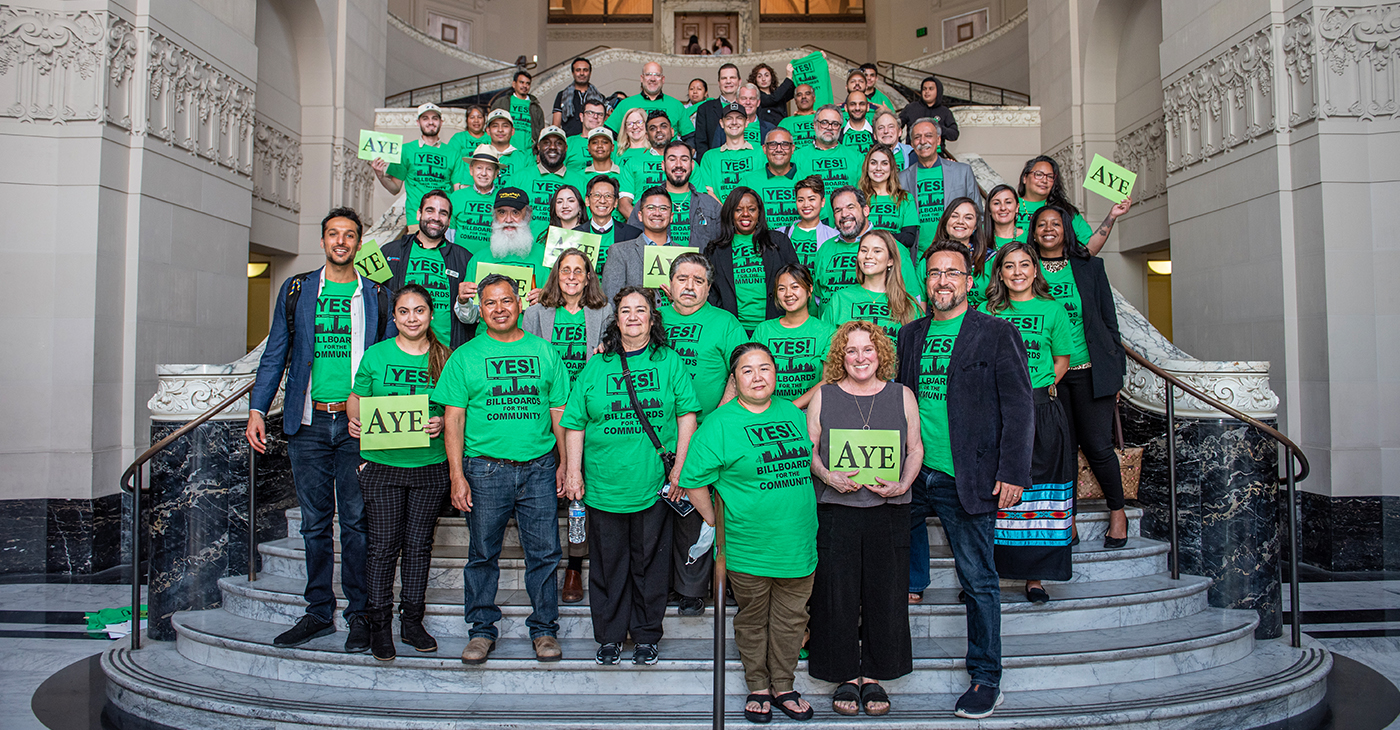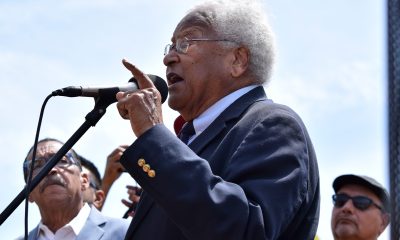Economy
School Board Approves Joseph Severance Package
THE TENNESSEE TRIBUNE — In a 5-3 vote, the Metropolitan Nashville Board of Education decided Tuesday to buy out the contract of Metro Nashville Public Schools Director, Dr. Shawn Joseph. Dr. Adrienne Battle will serve as interim director.
By Peter White
NASHVILLE, TN — In a 5-3 vote, the Metropolitan Nashville Board of Education decided Tuesday to buy out the contract of Metro Nashville Public Schools Director, Dr. Shawn Joseph. Dr. Adrienne Battle will serve as interim director.
In a statement Joseph said it was his life’s mission to ensure equity and excellence for all children and the he would continue to do so. “I believe much has been accomplished despite the pervasive challenges I encountered when arriving, and I am so proud of the tremendous work of the thousands of teachers and staff members who have helped to move the needle for our children,” Joseph said.
The terms were negotiated between Joseph’s lawyer and Metro Legal director Jon Cooper. Metro will pay Joseph’s attorney’s fees. The board approved the agreement Tuesday night.
Joseph’s last day will be Friday, April 12, 2019. There were ten parts to the separation agreement, a couple dealing with potential lawsuits. Board Chair Sharon Gentry summarized the buyout agreement that required both parties to refrain from “talking bad” about each other in the future.
“We have obviously reached an impasse,” said Amy Frogge (District 9).

The Metro School Board chamber was packed Tuesday with a pro-Joseph crowd. Some parents told the board that the turmoil and fighting has kept their children from getting a good education.
The board has been sharply split about Joseph’s leadership for months. Vice Chair Christiane Buggs, reflecting on the rift that has pushed Joseph out, said the board has tried to be Joseph’s boss and tell him what to do instead of helping him manage the district and the challenges facing Metro schools.
“Dr. Joseph is ready to go and leave what amounts to hostile working conditions so this a voluntary separation conversation. This is not a firing,” said Will Pinkston (District 7). Board Chair Sharon Gentry agreed.
“We are not terminating him. This is not a blight on his resume. It was, as he stated in his own statement, that it’s gotten to the point where he does not believe that the things that he values are aligning with the district, with the board specifically and it was time for us to part ways,” Gentry said.
Amy Frogge (District 9) then read a statement attacking Joseph and criticized his handling of the school budget, sexual harassment complaints, and blamed him for low morale among teachers and staff. She also criticized the board for an “an epic failure of the board’s oversight capacity with regard to fiscal operations”.
“I don’t personally believe that throwing out any number of allegations or accusations is holding the director accountable. We did not hold the director accountable because we did not do our part. It was our job to review the contracts. It was our job to follow up with Metro Legal if there were issues with contracts,” Buggs said.
School Board Chair Sharon Gentry, Rachel Anne Elrod, District 2, Vice Chair Christiane Buggs (District 5), Will Pinkson (District 7), and Gini Pupo-Walker (District 8) voted for the deal to give Joseph three months severance pay and $261,250 for the final year of a 4-year contract signed in July 2016.
Jill Speering (District 3), Amy Frogge (District 9, Fran Bush (District 6) voted against the deal. They wanted Joseph fired.
Anna Shepherd (District 4), who had also wanted to fire Joseph, did not attend the meeting.
This article originally appeared in The Tennessee Tribune.
Activism
Community Celebrates Historic Oakland Billboard Agreements
We, the Oakland Billboard Economic Development Coalition, which includes Oakland’s six leading community health clinics, all ethnic chambers of commerce, and top community-based economic development organizations – celebrate the historic billboard agreements approved last year by the Oakland City Council. We have fought for this opportunity against the billboard monopoly, against Clear Channel, for five years. The agreements approved by Council set the bar for community benefits – nearly $70 Million over their lifetime, more than 23 times the total paid by all previous Clear Channel relocation agreements in Oakland combined.

Grand Jury Report Incorrect – Council & Community Benefit
We, the Oakland Billboard Economic Development Coalition, which includes Oakland’s six leading community health clinics, all ethnic chambers of commerce, and top community-based economic development organizations – celebrate the historic billboard agreements approved last year by the Oakland City Council. We have fought for this opportunity against the billboard monopoly, against Clear Channel, for five years. The agreements approved by Council set the bar for community benefits – nearly $70 Million over their lifetime, more than 23 times the total paid by all previous Clear Channel relocation agreements in Oakland combined.
Unfortunately, a recent flawed Grand Jury report got it wrong, so we feel compelled to correct the record:
- Regarding the claim that the decision was made hastily, the report itself belies that claim. The process was five years in the making, with two and a half years from the first City Council hearing to the final vote. Along the way, as the report describes, there were multiple Planning Commission hearings, public stakeholder outreach meetings, a Council Committee meeting, and then a vote by the full Council. Not only was this not hasty, it had far more scrutiny than any of the previous relocation agreements approved by the City with Clear Channel, all of which provide 1/23 of the benefits of the Becker/OFI agreements approved by the Council.
- More importantly, the agreements will actually bring millions to the City and community, nearly $70M to be exact, 23 times the previous Clear Channel relocation agreements combined. They certainly will not cost the city money, especially since nothing would have been on the table at all if our Coalition had not been fighting for it. Right before the decisive City Council Committee hearing, in the final weeks before the full Council vote, there was a hastily submitted last-minute “proposal” by Clear Channel that was debunked as based on non-legal and non-economically viable sites, and relying entirely on the endorsement of a consultant that boasts Clear Channel as their biggest client and whose decisions map to Clear Channel’s monopolistic interests all over the country. Some City staff believed these unrealistic numbers based on false premises, and, since they only interviewed City staff, the Grand Jury report reiterated this misinformation, but it was just part of Clear Channel’s tried and true monopolistic practices of seeking to derail agreements that actually set the new standard for billboard community benefits. Furthermore, our proposals are not mutually exclusive – if Clear Channel’s proposal was real, why had they not brought it forward previously? Why have they not brought it forward since? Because it was not a real proposal – it was nothing but smoke and mirrors, as the Clear Channel’s former Vice President stated publicly at Council.
Speaking on behalf of the community health clinics that are the primary beneficiaries of the billboard funding, La Clinica de la Raza CEO Jane Garcia, states: “In this case, the City Council did the right thing – listening to the community that fought for five years to create this opportunity that is offering the City and community more than twenty times what previous billboard relocation agreements have offered.”
Oakland Billboard Economic Development Coalition
| Native American Health Center | La Clínica de la Raza | West Oakland Health Center |
| Asian Health Services | Oakland LGBTQ Center | Roots Community Health Center |
| The Unity Council | Black Cultural Zone | Visit Oakland |
| Oakland African American Chamber of Commerce | Oakland Chinatown Chamber of Commerce | Oakland Vietnamese Chamber of Commerce |
| Oakland Latino Chamber of Commerce | Building Trades of Alameda County | (partial list) |
Activism
Grocery Inflation Causes Food Banks to be the Default for Families in Oakland
Steve Morris, Director of Natural Resources and Environment at GAO, explained that while the pandemic certainly had an effect on food increases, there is not one single factor for a rise in food prices. He said events like the Ukraine-Russian war, the avian influenza epidemic that raised the price of eggs, and climate change are also key factors.

By Magaly Muñoz
During the past three years, the US has seen the largest increase in food prices since the 1980s. In response to this crisis, community food banks have emerged to provide much-needed assistance to families in need.
The U.S. Government Accountability Office (GAO) reports that national food prices have increased 11% from 2021 to 2022, when the average yearly increase was previously 2%. The San Francisco Bay Area saw a 12% increase from 2021 to 2022.
Steve Morris, Director of Natural Resources and Environment at GAO, explained that while the pandemic certainly had an effect on food increases, there is not one single factor for a rise in food prices. He said events like the Ukraine-Russian war, the avian influenza epidemic that raised the price of eggs, and climate change are also key factors.
While still maintaining that elevated prices will persist for the foreseeable future, Morris anticipates a decrease of 8% in food price increases.
He also stated that while the average person may spend 10% of their income on groceries, a low-income family may spend 30%, making the inflation in food prices that much harsher.
“Higher food prices can put people in a position where they have to make some tough choices between ‘can they go to the grocery store and buy food’ or ‘do they have to spend it on other necessities like home or health care or other things,’” Morris said.
Michael Altfest is the Director of Community Engagement and Marketing for Alameda County (AC) Food Bank, the primary food distributor in the county with over 400 community partners that receive frequent donations.
Altfest shared that from 2019 to 2023, the number of pounds of food distributed to their community partners has doubled. In 2019, the food bank distributed 32.5 million pounds of food, while in 2021 during the height of the pandemic, they distributed 58.1 million pounds. This year they are on pace to distribute almost 60 million pounds of food.
“If we’re on pace this year to provide more than we did in the pandemic, I think that says a lot about what the state of hunger is right now,” Altfest said.
During the height of the pandemic, state and federal government relief programs helped families offset significant expenses like groceries. These programs included the child tax credit increase that put anywhere from $2,000 up to $3,600 back into qualifying families pockets when filing their yearly taxes.
Another program that directly targeted food insecurity, was the increase in funds for SNAP or CalFresh. These government programs provide food-purchasing assistance for low- and no-income people to help them maintain adequate nutrition and health. But earlier this spring, funding was cut from the state program CalFresh and families saw at least a $95 decrease in their assistance.
“Every single person talks about the cost of living in Alameda County, every single person. The cost of rent, the cost of food, those are things that come up every single time without fail,” Altfest shared.
One of AC Food Bank’s community partners is Homies Empowerment, a non-profit in Oakland that was established as a means to support youth and the community through a positive lens.
Selena Duarte, the FREEdom Store Coordinator, said the organization’s initiative to help families with food provision began in May of 2020 when their original store was filled only with books and students told them that while it was nice to have things to read, “they can’t eat books,” showing the team at Homies Empowerment that there were bigger needs in the community that they had to address.
Since then, the organization has expanded its services. They now provide groceries every Tuesday, have established the FREEdom Farm where they grow produce that gets distributed in their make-shift store, offer hot breakfast to 40 students and their families five days a week, and much more.
Duarte said that they serve almost 400 families a week and they are continuing to expand their food services due to the increasing number of people coming to them seeking help to reduce their spending on groceries. She recognized that although people say that the “pandemic is over”, she knows that the stress that families are experiencing is still very real.
“The next phase is really becoming a sustainable community food hub, where literally we can grow, share, cook, and store our food here in the community and for the community,” Duarte said.
Bay Area
PG&E Increases Rates While Bay Area Households Are Struggling to Stay Afloat
Prior to the pandemic, less than 2% of callers were asking for utility assistance, but in the last year that percentage has grown to 8.2%, according to Eden I&R data. Oakland made up 40% of the calls to 211, with Black and Latino individuals and single parents making up the majority of the callers. Female callers made up over double that of male callers and most ranged from 25 to 64 years old.

By Magaly Muñoz
The cost of living is growing as millions of California customers will soon start to see the effects of PG&E raising their rates after a case ruling that will hike up monthly utility bills and ultimately raise the cost of living for struggling residents.
The California Public Utilities Commission (CPUC) agreed in November to a request by the electric company for $13.5 billion for wildfire system enhancement and undergrounding, vegetation management, and capacity upgrades.
Starting Jan. 1, residents will see a nearly $33 increase in their upcoming electric and natural gas bill.
Mark Toney, Executive Director of The Utility Reform Network (TURN), an advocacy group, said that low-income families would be most affected by the change.
“I like to say we want the most green for the least green, and the cost of ‘greening the grid’ should not be cutting off low-income families of color from the grid because the monthly bills are too doggone high,” Toney said.
Toney said he was worried that if the cost of utilities continues to increase, some families would be unable to make their payments and would therefore, lose power.
If families choose cost-saving alternatives like using candles, the potential for a fire rises if families with small children accidentally knock something over and don’t put it out in time. People also rely on medical devices for health-related reasons to be hooked up for long periods of time, which could contribute to high costs in electricity bills.
Some Bay Area residents are already struggling to pay their utility bills.
Longtime Oakland resident, Rev. Dr. Barbara Jim-George has found herself using odd, potentially dangerous, alternatives to using her central heat, such as leaving open a hot oven to warm her living room because her apartment is “like a walk-in freezer.”
The CDC has warned against using this method to heat up your home as it can disperse dangerous pollutants and gasses, like carbon monoxide, and worsen already existing lung diseases.
“I can leave something sitting out on my table at night and it’s just fine as it would be in the refrigerator,” Jim-George said.
She had retired from her job in 2014 and was living on a tight budget for a few years until she found herself back at work in 2018 because her social security checks weren’t enough to pay bills.
As the cold and rainy weeks persist, the reverend anticipates a higher utility bill in the mail soon.
Jim-George shared that she had a cousin who lost their home in the Camp Fire of 2018, the deadliest and most destructive wildfire in California’s history, and blamed PG&E for not learning from these tragedies to do what was best for customers.
“They [PG&E] should have buried lines long ago because we’re eating the cost for [their mistakes]. I think it’s negligent on their side to not have had the foresight to understand the issues beforehand,” Jim-George said.
While the reverend is one of many who will have to resort to budgets and taking on second jobs in order to keep up with high housing bills, organizations across the area have seen a large intake of housing and emergency needs for decades, increasing with the effects of the pandemic in the last four years.
The need for utility assistance has grown exponentially, with four times the amount of calls coming in about families who have been without energy or are months behind in bills and are at risk of losing power in their homes.
“Housing [and related needs] remains our top concern for callers calling 211,” Allison DeJung said.
DeJung is the Executive Director of Eden I&R, which operates the calls and messages from 211 Bay Area- a multilingual 24/7 information hotline that connects callers with resources in Alameda County.
She said that in the last fiscal year, her team received over 69,000 calls and they made about 113,000 referrals to programs and organizations in the county for issues related to housing, utilities, food assistance and more.
Prior to the pandemic, less than 2% of callers were asking for utility assistance, but in the last year that percentage has grown to 8.2%, according to Eden I&R data. Oakland made up 40% of the calls to 211, with Black and Latino individuals and single parents making up the majority of the callers. Female callers made up over double that of male callers and most ranged from 25 to 64 years old.
DeJung said most callers looking for help paying their utility services were connected to Spectrum Community Services.
Spectrum is a nonprofit organization that has financially assisted low-income families and individuals through utility, water, and food aid since 1971.
Last year they received nearly 10,000 applications for their Low Income Home Energy Assistance Program (LIHEAP), which helps households pay overdue energy bills. The organization was only able to help 5,000 of those applicants.
Black households, similar to data from Eden I&R, were the majority of applicants for utility assistance at Spectrum, along with the majority of assistance coming from Oakland residents.
Lara Calvert, Executive Director of Spectrum Community Services, said the lack of funding is the primary reason they have to turn away applicants.
Assistance can be granted once every 12 months, with a cap of $3000 in overdue bills. Calvert said the large cap is what also contributes to helping less people every year because if multiple people apply for large quantities of assistance, funding runs out quicker.
Spectrum prioritizes households that have people who are over 60, anybody who’s disabled in the home, people who have children five years or younger, as well as people with a higher overall energy burden for their home.
A high energy burden is when a family’s energy or utility bills take up the majority of a household’s monthly income, making it difficult to maintain a sustainable quality of life.
Calvert shared that although the beginning of the pandemic brought more attention to the organization, 2023 was the largest year for residents asking for assistance from the program and it doesn’t look like it’s going to slow down soon.
“We are anticipating continuing to have a large number of people seeking assistance this year that will far outstrip our amount of money that we have to give out,” Calvert said.
-

 Arts and Culture3 weeks ago
Arts and Culture3 weeks agoRooted in Tradition: The Intricate History of Black Hair Braiding
-

 Bay Area4 weeks ago
Bay Area4 weeks ago“I Will Not Be Bullied,” Says Oakland Mayor Sheng Thao
-

 Bay Area2 weeks ago
Bay Area2 weeks agoPG&E Increases Rates While Bay Area Households Are Struggling to Stay Afloat
-

 Business3 weeks ago
Business3 weeks agoGov Newsom: Raising Fast Food Minimum Wage to $20 Pays Off as Jobs Multiply in Industry
-

 Activism4 weeks ago
Activism4 weeks agoOpponents of Mayor Sheng Thao Are Calling on Her to Resign Following FBI Raid
-

 Community1 week ago
Community1 week agoHundreds Come to Jehovah’s Witnesses’ Assembly Hall for Three-Day Program of ‘Good News’ in Fremont
-

 Bay Area2 weeks ago
Bay Area2 weeks agoJuneteenth Mass Shooting Suspect Charge with Multiple Counts of Felony Assault by Alameda County DA Pamela Price
-

 Activism4 weeks ago
Activism4 weeks agoOakland Coliseum Sale to AASEG: A Model for Community Development and Inclusion























































